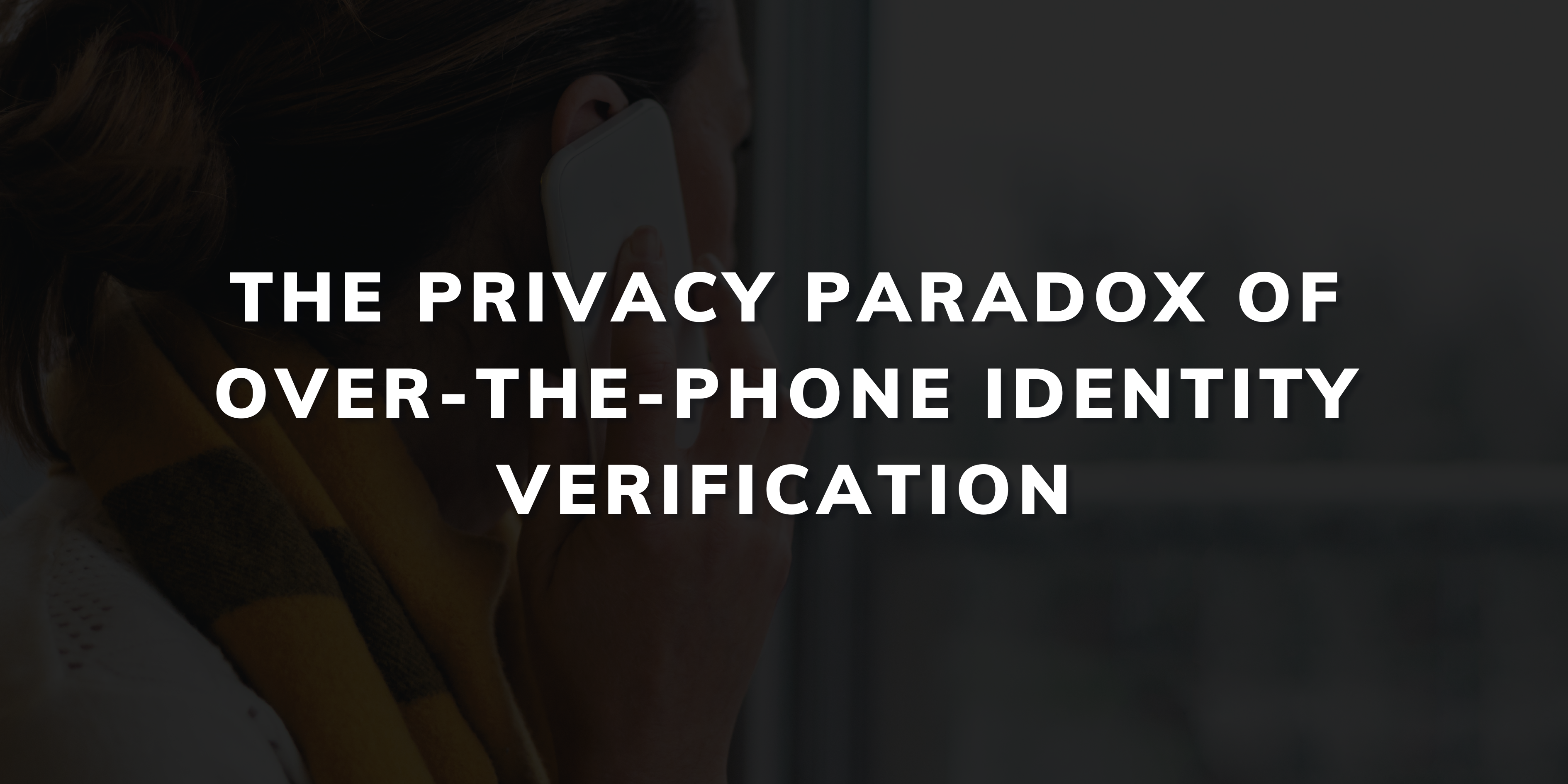
The Privacy Paradox of Over-The-Phone Identity Verification
In an era where data breaches seem to make headlines with disturbing regularity, the importance of robust identity verification cannot be overstated. Yet, as businesses ramp up their security measures, customers find themselves at a crossroads between the need for safety and the right to privacy. Over-the-phone identity verification, a common method employed by customer service centres, banks, and various service providers, stands out as a prime example of this privacy paradox.
Key Summary
- Over-the-phone verification protects accounts but raises privacy concerns.
- Risks include data interception, weak verification questions, and excessive data collection.
- A balance requires multi-factor authentication, voice biometrics, and transparent data practices.
- Future methods like SSI and ZKPs promise greater security with less privacy intrusion.
- Successful verification must secure accounts while respecting privacy.
The Process and Its Importance
Over-the-phone identity verification typically involves the customer providing personal information to a representative to confirm their identity. This process may include answering security questions based on personal or financial history, or providing sensitive details like security numbers, addresses, or account numbers. It’s a crucial step in protecting customer accounts from unauthorised access and preventing fraud, serving as a front-line defence in the fight against identity theft.
The Privacy Concerns
However, this method of verification raises significant privacy concerns. First and foremost is the issue of data security. When customers relay sensitive information over the phone, they must trust that the person on the other end, as well as the company’s data systems, are secure. This information, if intercepted or improperly stored, could be a goldmine for cyber-criminals.
Another concern is the accuracy and security of the verification questions themselves. Questions based on publicly available information, or data that could be easily accessed or guessed by others, offer little in the way of security. Moreover, the increasing sophistication of social engineering tactics means that criminals are often able to bypass these measures, tricking service representatives into granting them access to customer accounts.
Lastly, there’s the issue of over-collection of data. In their zeal to secure accounts, some companies might request more information than is strictly necessary for verification, infringing on customer privacy and potentially violating data protection regulations
Striking a Balance
The challenge, then, is to strike a balance between effective security measures and the protection of customer privacy. This balance is not only crucial for customer trust but is increasingly becoming a legal requirement, as seen in data protection laws like the General Data Protection Regulation (GDPR) in Europe and the California Consumer Privacy Act (CCPA).
Companies can take several steps to mitigate privacy concerns while still ensuring robust over-the-phone verification. Employing multi-factor authentication, where a phone verification step is just one part of a multi-step process, can enhance security without overly relying on the exchange of sensitive information. Additionally, companies can invest in technology like voice biometrics, which can confirm a customer’s identity based on their voice pattern—a method that can be both secure and less intrusive.
Encryption of calls and strict data handling and storage protocols are also essential to protect the information being exchanged. Furthermore, transparency with customers about how their data is being used and stored can go a long way in maintaining trust.
The Future of Phone Verification
The future of over-the-phone identity verification is set to undergo a trans-formative shift with the integration of Self-Sovereign Identity (SSI) and advanced cryptographic methods like Zero-Knowledge Proofs (ZKPs).
This evolution moves away from traditional verification methods that require customers to verbally share sensitive information, towards a more secure and privacy-centric approach.
By allowing individuals to manage their own digital identities and share only necessary information through a unique ID, this method not only enhances privacy and security but also empowers users and streamlines the verification process. With technologies such as AI, machine learning, and blockchain driving this change, the adoption of SSI and ZKPs marks a significant step forward in achieving a balance between security and privacy in digital interactions, heralding a new era for identity verification.
Conclusion
In conclusion, over-the-phone identity verification is a critical component of modern data security strategies. Yet, it must be approached with a keen awareness of the privacy implications. As companies navigate these waters, the ultimate goal should be not just to protect against unauthorised access, but to do so in a way that respects and safeguards the privacy of their customers.
